I have a tensorflow expression where I want to use a different expression depending on whether I'm computing the forward or backward (gradient) pass. Specifically, I want to ignore the effects of some randomness (noise) added into the network during the backwards pass.
Here's a simplified example
import numpy as np
import tensorflow as tf
x = tf.placeholder(tf.float32)
y = x**2
u = tf.random_uniform(tf.shape(x), minval=0.9, maxval=1.1)
yu = y * u
z = tf.sqrt(yu)
g = tf.gradients(z, x)[0]
with tf.Session() as sess:
yv, yuv, zv, gv = sess.run([y,yu,z,g], {x: [-2, -1, 1]})
print(yv)
print(yuv)
print(zv)
print(gv)
which outputs something like
[4. 1. 1.]
[4.1626534 0.9370764 1.0806011]
[2.0402582 0.96802706 1.0395197 ]
[-1.0201291 -0.96802706 1.0395197 ]
The last values here are the derivative of z with respect to x. I would like them to not include the multiplicative noise term u, i.e. they should consistently be [-1, -1, 1] for these input values of x.
Is there a way to do such a thing only using Python? I know I can make a custom operator in C and define a custom gradient for it, but I'd like to avoid this if possible.
Also, I'm hoping to use this as part of a Keras layer, so a Keras-based solution would be an alternative (i.e. if one could define a different expression for the forwards and backwards pass through a Keras layer). This does mean that just defining a second expression z2 = tf.sqrt(y) and calling gradients on that isn't a solution for me, though, because I don't know how I would put that in Keras (since in Keras, it will be part of a very long computational graph).
